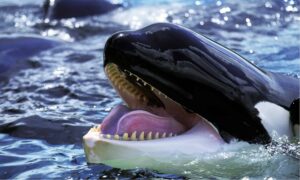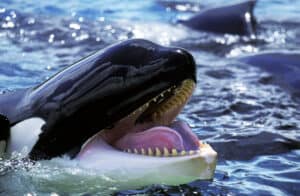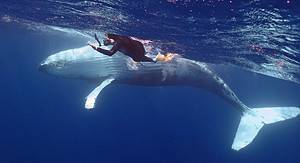Continue reading for our analysis...
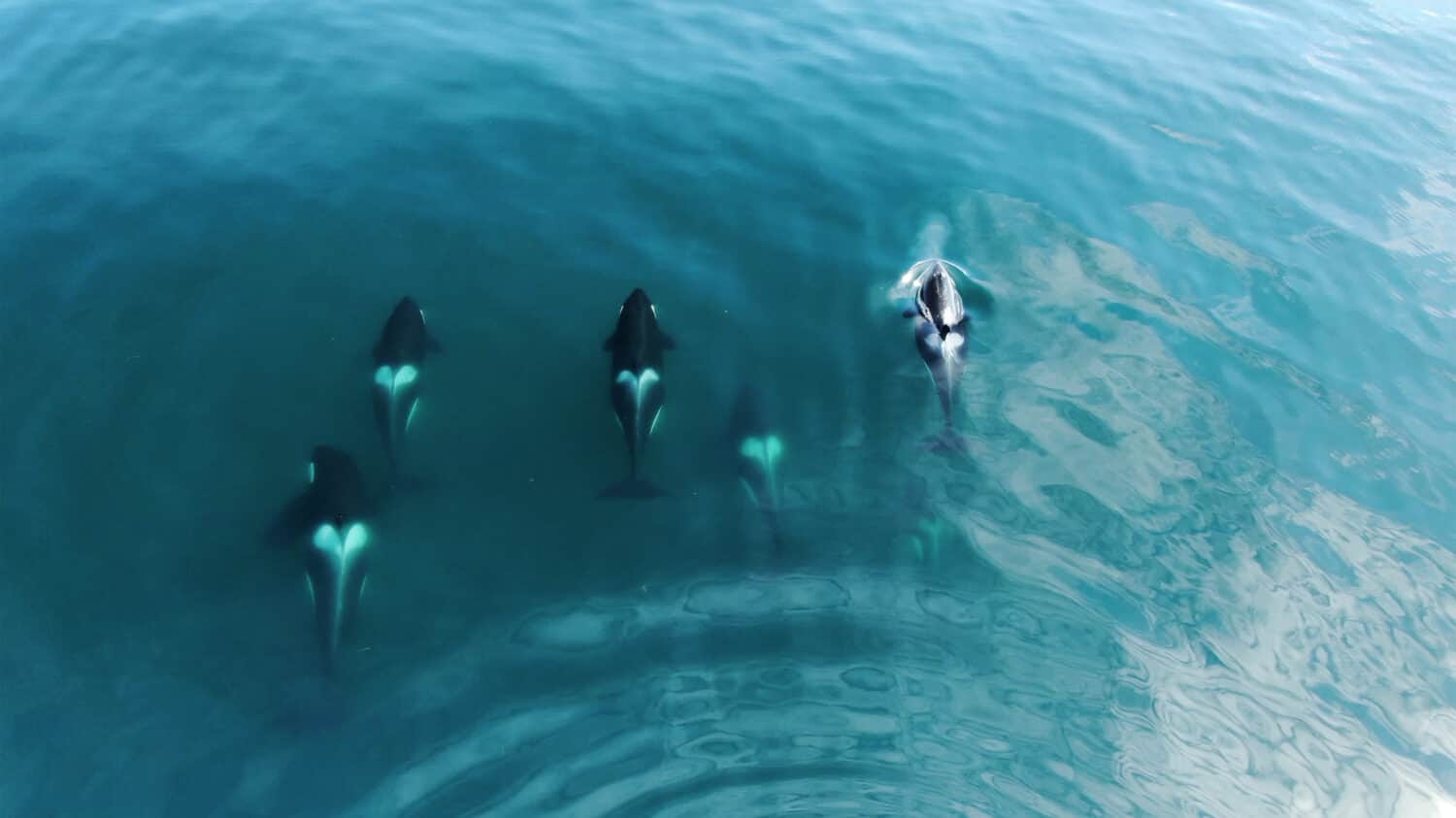
This elephant seal was minding its business swimming in the sea off the coast of Sea Lion Island near the Falkland Islands. Unfortunately, it swam into the path of a well-known local orca pod that hunts in this area led by a female called Puma. Even a newborn orca calf, called Pepper, was taking part in the hunt. The outcome was inevitable but is spectacular, nevertheless. The seawater turns a crimson red from the seal’s blood. Scroll down to see the full striking drone footage.
What Do Killer Whales Normally Hunt?
Killer whales are a member of the Delphinidae family which means that they are not whales at all. They were given the name hundreds of years ago by sailors who spotted them feasting on whale carcasses. Having been originally given the name ‘whale killers’ – this got switched around at some point to become killer whales. Their scientific name is Orcinus orca.
Orcas are carnivores and very effective hunters. They feed on several fish including salmon and the offshore killer whales will also eat blue sharks and dogfish. Some killer whales feed on sea lions, porpoises, and as we see in this clip, seals. They have been seen pushing themselves onto shore to grab sea lions. As their name suggests, they also hunt gray whales and Minke whales. An adult orca can consume 300 pounds of food a day!
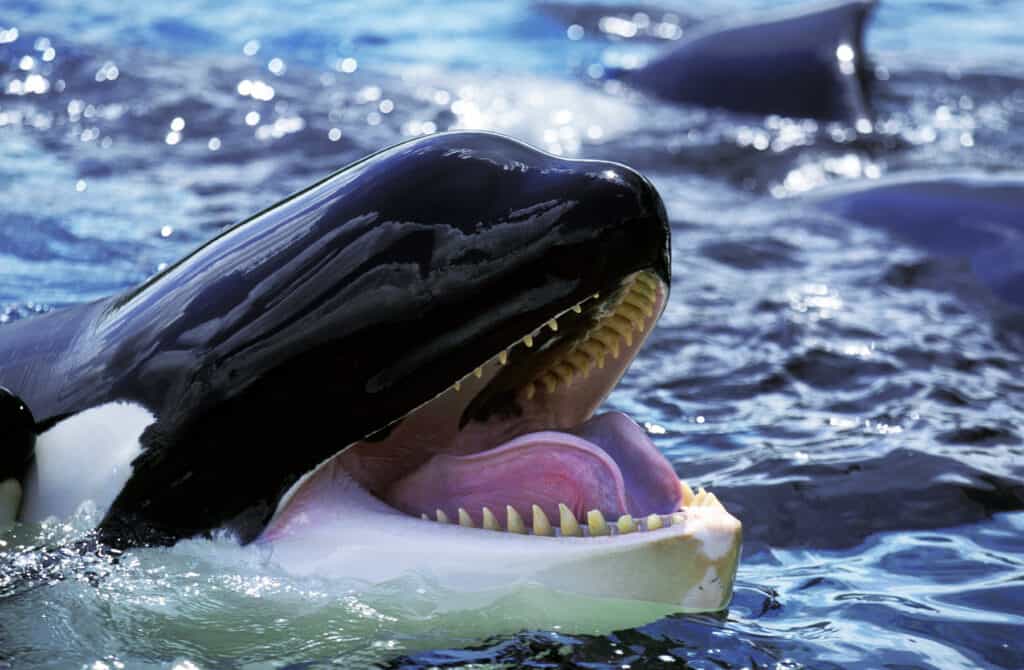
Orcas are powerful animals with sharp teeth!
©slowmotiongli/Shutterstock.com
Are Killer Whales Dangerous?
Having watched the carnage that this pod managed to create, this is a reasonable question! They are a highly intelligent species and are amongst the most powerful predators in the ocean. Orcas have no natural predators and are found in oceans all over the world.
They have several physical attributes that make them highly effective killing machines. This includes a large body, long sharp teeth, and powerful muscles to help them achieve impressive swimming speeds.
Humans are not their natural prey, and there are no records of killer whales actively hunting humans in the ocean. Having said that, there are reports of killer whales attacking and being aggressive towards humans when they are kept in captivity. Recently, there has been a spate of orca attacks on sailing boats around the coast of Spain and Portugal. Experts are not entirely sure why this is happening. However, it is suggested that it is simply a fad and that the orcas are doing it for entertainment.
Is This Normal Behavior?
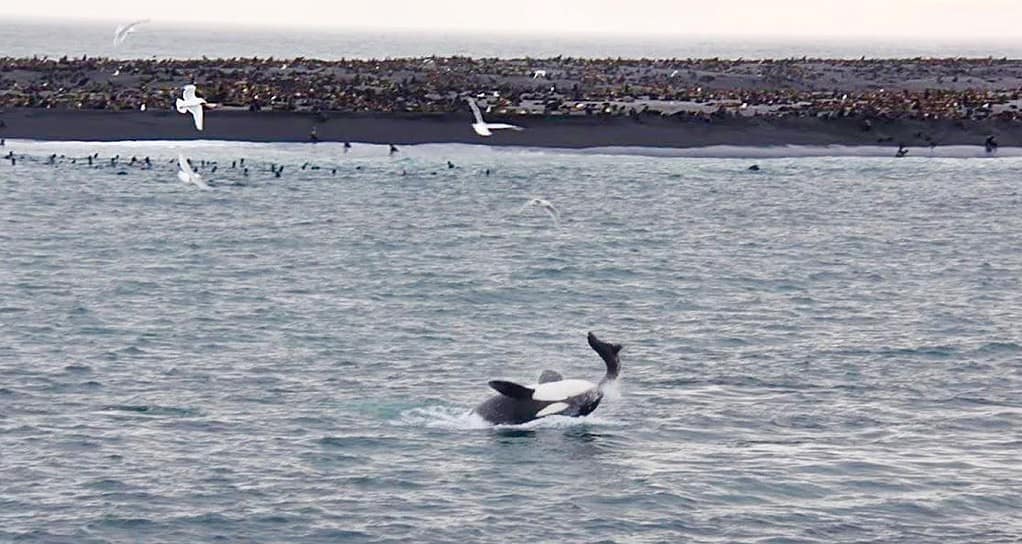
Orcas, or killer whales, are highly social mammals that work together to hunt.
©Jeff Williams/US Fish and Wildlife Service, Public domain, via Wikimedia Commons – License
Killer whales will target many types of animals, from seals and sea lions to penguins and elephant seals, and even the formidable great white shark, favored for its nutritious liver. Depending on which area they are located, a killer whale’s prey will not only vary but it may be more abundant than in others. In areas like Sea Lion Island, their main source of prey is the elephant seal. This is because of the effort they put towards hunting each animal. They have a much higher success rate and are typically guaranteed a much higher return when going after elephant seals.
Orcas, or killer whales, are highly social mammals that work and live in a group structure. Pod sizing range but they will do everything with their pods – from raising their young and playing to the most well-known activity, hunting. It is normal to see a group of orcas working together on different ways to obtain their prey.
Thank you for reading! Have some feedback for us? Contact the AZ Animals editorial team.



